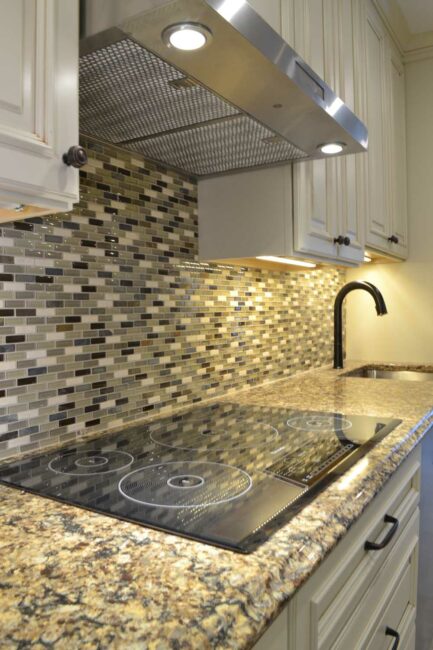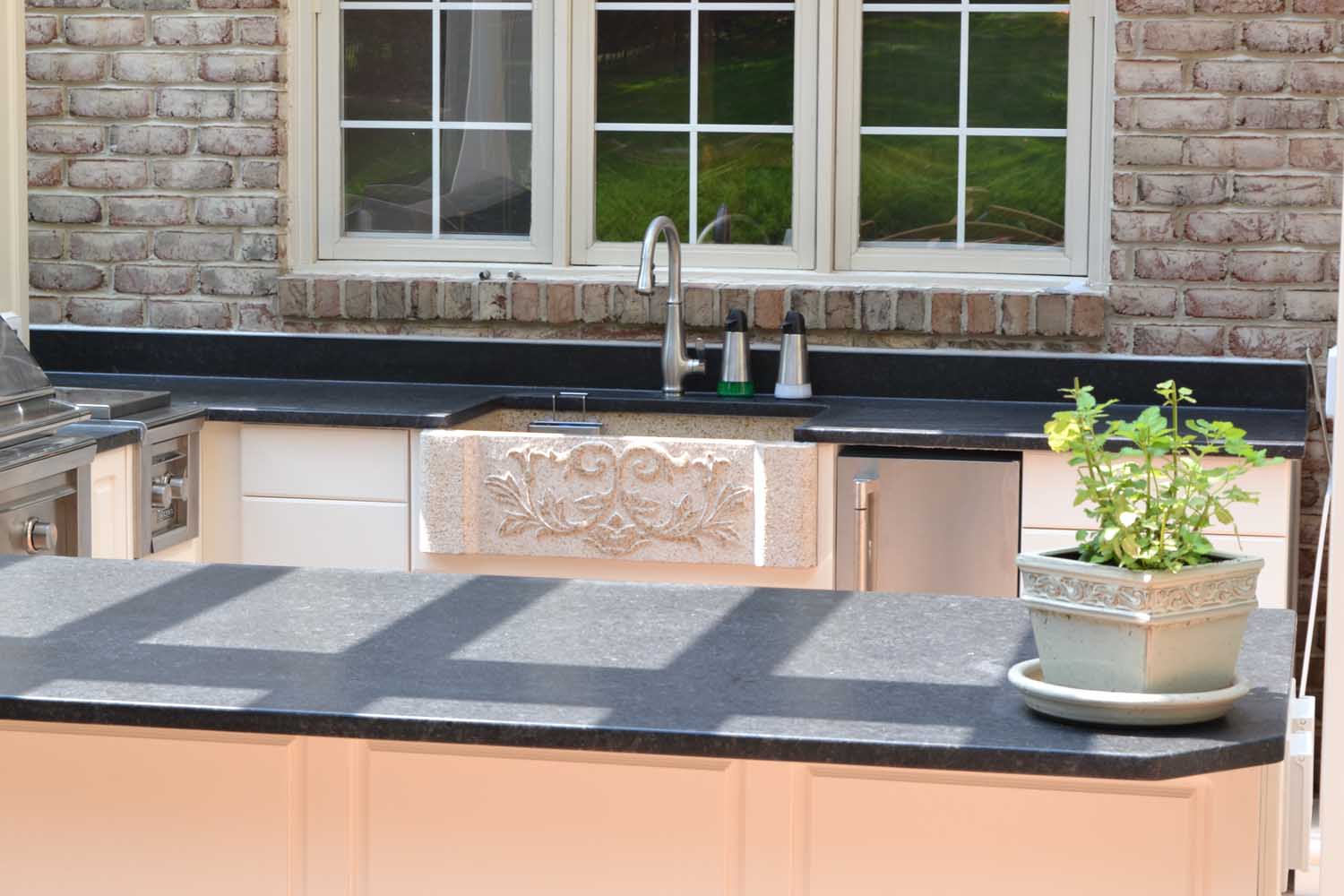Embarking on a kitchen remodel can be both exciting and overwhelming. As the heart of the home, the kitchen plays a crucial role in our daily lives, making it essential to approach the remodeling process with careful planning and organization. From creating a realistic budget to maintaining a functional temporary kitchen space throughout the renovation, surviving a kitchen remodel requires a combination of foresight and flexibility. Here are some things you can start to think about as you plan how to survive a kitchen remodel.
First Thing’s First: Know What’s Ahead
The first thing to do is familiarize yourself with the project timeline to know what to expect. Most of our clients can stay in their homes during their kitchen remodel; however, you must know that there will be disruption to daily life for several weeks. Some clients plan a vacation or a mini-break at a local hotel around the dates of the greatest home disruption—to stay away from the mess! But for the balance of the renovation, they do meal prep ahead of time so they have quick and healthy meals they can heat up in the microwave, and if the family is close by, they plan to join them for dinner once a week.
Most of our clients set up a temporary kitchen in another room. We have even seen some of our clients use their RV as a space where they prepare their meals, and the impact is greatly lessened. No matter what you decide to do, know what to expect and have a solid plan in place.

7 Tips for Surviving a Kitchen Remodel
A kitchen remodel can be a range of emotions, from excitement to daunting, mainly because it involves the heart of your home. The kitchen is where you prepare meals, relax with friends and family, and sometimes even work. So, a remodel can disrupt your daily routine for weeks or even months. But don’t worry; we are sharing these seven tips to make the process smoother.
Set Up a Temporary Kitchen During Remodel
One of the most frustrating aspects of surviving a kitchen remodel is food preparation, which is why you need to set up a temporary kitchen to keep food construction-free. A temporary kitchen can be as simple as a microwave, coffee maker, toaster oven, and hot plate in the dining room, or you might prefer to set up a more extensive kitchen in the basement or garage. In addition to a folding table and chairs, ensure the temporary kitchen has all the essentials for food prep, like a cutting board, sharp knife, and pots and pans. It’s also a good idea to stock up on disposable paper plates, cups, and utensils so you don’t have to worry about doing the dishes. With some planning, you can ensure you still have the necessary cooking and dining items while your kitchen is being remodeled.
Here at Northwood Construction, we understand how disruptive the kitchen renovation process is to your daily life, so we loan our clients an induction hot plate so they can do basic meals within their own four walls. Ask your contractor if they have loaner items that you can borrow until the job is done. Maybe they have a toaster oven or an air fryer you can borrow.
Makeshift Kitchenette
A staple in many households in Northern Virginia is a deck or patio with a grill. It’s a good idea to double-check that you have enough propane and fresh grilling tools. While this may feel like an easy solution, it’s heavily weather-dependent. It’s always a good idea to have a backup plan. Another solution to keeping your meals in your house is to use that basement kitchen, especially if you have a little countertop space. While it may not be as robust as the main kitchen, it can easily be transitioned into the new central hub of the home and serve a great purpose temporarily.

Meal Preparation
We mentioned this before, but it’s a great idea to prepare meals ahead of time and keep them in the fridge or freezer. Making double portions of your favorite stew or baking up a bunch of chicken can set you up for success. We all have experienced too many lids and not enough plastic storage containers, so it may be time to invest in a new set of food storage containers or silicone storage bags. This allows you to make meals ahead of time and store them in a garage deep freezer to reheat later.
Store Items Not Needed
Before construction begins, one important thing to do is store away everything in your kitchen that you don’t need. Two always come to mind are your standing mixer and cookie sheets (although you might want to set one aside for grilling). As you pack away items, think about how you’ll cook while your kitchen is being remodeled. For example, while it may be the middle of summer and you don’t typically use your slow cooker, it may actually come in handy for pulling “one-pot meals” together or reheating a meal you previously prepped. At the same time, identify kitchen items that you will want that will make your life easier. For example, four plates may be enough, but you may need six spoons.
💡Tip: Many clients actually use this time to prepare for downsizing. It can be eye-opening the things you find in the back corners of your kitchen cabinets! Get inspired by Marie Kondo and donate anything you no longer use. That way, your new kitchen won’t feel nearly as cluttered when your project is complete.
Relocate Your Appliances
If your kitchen appliances can still be used, consider moving them to an accessible place, such as moving the refrigerator to the garage. If there is a corner in the dining room that can store your microwave, slow cooker and air fryer, that may help to have it close by when it’s time to make dinner. In the morning, you’ll be glad you kept your coffee maker or Keurig in a convenient spot.
Repurpose Your Utility Sink
Many folks often overlook repurposing other spots in the house. The utility sink in your garage or laundry room may come to your rescue and act as a great dishwashing spot (and it’s better than the tub or garden hose). The key to this hack is to remember that they often don’t come with a garbage disposal, so you’ll want to scrape any remnants before turning on that hot water.
Order Take Out
While this may not be a solution for every meal, building the cost of eating out into your kitchen remodeling budget is often a good idea. It’s inevitable, at some point, you’ll get tired of making meals with such limited resources at hand, and you may not be able to tolerate one more microwaved meal. When the mood strikes, leave the house and go to your favorite neighborhood nook. The portion sizes may often be large enough to split into a leftover meal, too.
Though the going may get tough and deadlines may be stretched, remember that in the end, you’ll be glad that you finally decided to take the plunge and remodel your kitchen. Having a beautiful space to look forward to can minimize the renovation rollercoaster. The more you plan and stay organized, the smoother things will run. If you need more ideas on how to survive a kitchen remodel, contact the experts at Northwood Construction.
